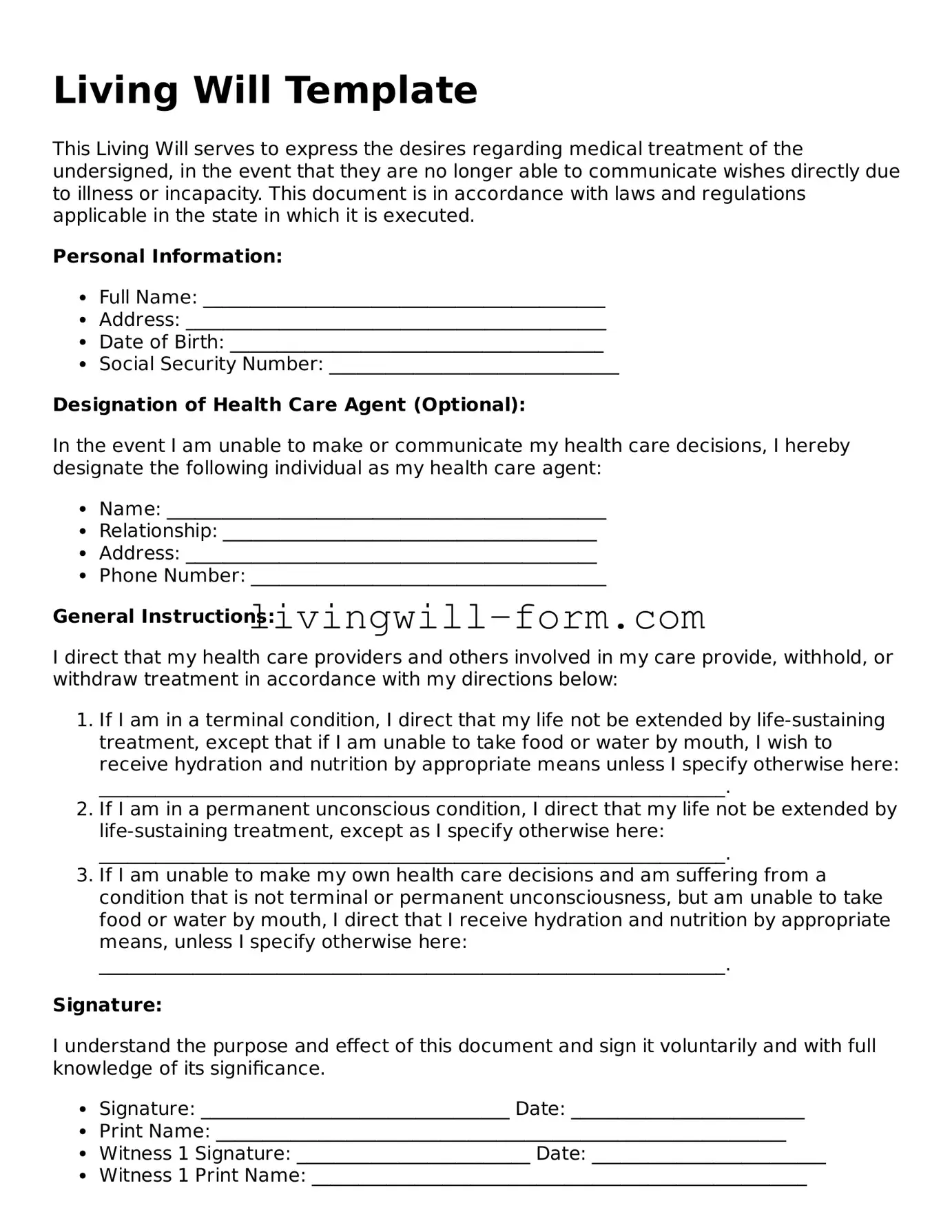A Durable Power of Attorney for Health Care is similar to a Living Will in that it allows individuals to make decisions about their medical care in the event they are unable to communicate their wishes. However, instead of providing specific instructions for care, it designates another person, usually a trusted family member or friend, to make health care decisions on their behalf.
A Medical Power of Attorney is another document that is closely related to a Living Will. It grants a designated agent the authority to make all types of health care decisions for the individual, not limited to end-of-life decisions, should they become unable to make these decisions themselves. This allows for a broader scope of decision-making than a Living Will, which is typically focused on end-of-life care.
An Advance Health Care Directive combines elements of both a Living Will and a Medical Power of Attorney. It allows individuals to outline their medical wishes, including end-of-life care, and appoint a health care agent. This comprehensive approach ensures that wishes regarding medical treatment are respected, even if the individual cannot voice these decisions.
A Do Not Resuscitate (DNR) Order is similar to a Living Will in its focus on end-of-life care decisions. Specifically, it instructs health care providers not to perform CPR if the patient's breathing stops or if their heart stops beating. Unlike a Living Will, which may address a range of medical treatments, a DNR Order applies to this specific emergency treatment scenario.
A POLST (Physician Orders for Life-Sustaining Treatment) form is similar to a Living Will but more medically detailed. It translates an individual’s wishes into actual doctor's orders that are to be followed by health care professionals. It addresses critical issues like resuscitation, intubation, and use of antibiotics, ensuring that the patient's wishes are followed in emergency and non-emergency situations alike.
A Financial Power of Attorney resembles a Living Will in that it allows an individual to designate someone else to make important decisions on their behalf. However, this document focuses on financial matters, including the management of property, bank accounts, and other assets, rather than health care decisions.
A Trust, specifically a Revocable Living Trust, shares with a Living Will the feature of taking effect while the individual is still alive. It allows for the management of an individual's assets according to pre-set terms, which can include provisions for the individual's care and the management of their affairs should they become incapacitated.
Last Will and Testament is related to a Living Will in its consideration of the individual's wishes after death. However, instead of focusing on health care decisions, it directs the distribution of the individual’s assets and care of any dependents. This document comes into effect only after the individual's death, unlike a Living Will, which applies when they are still alive but incapacitated.
